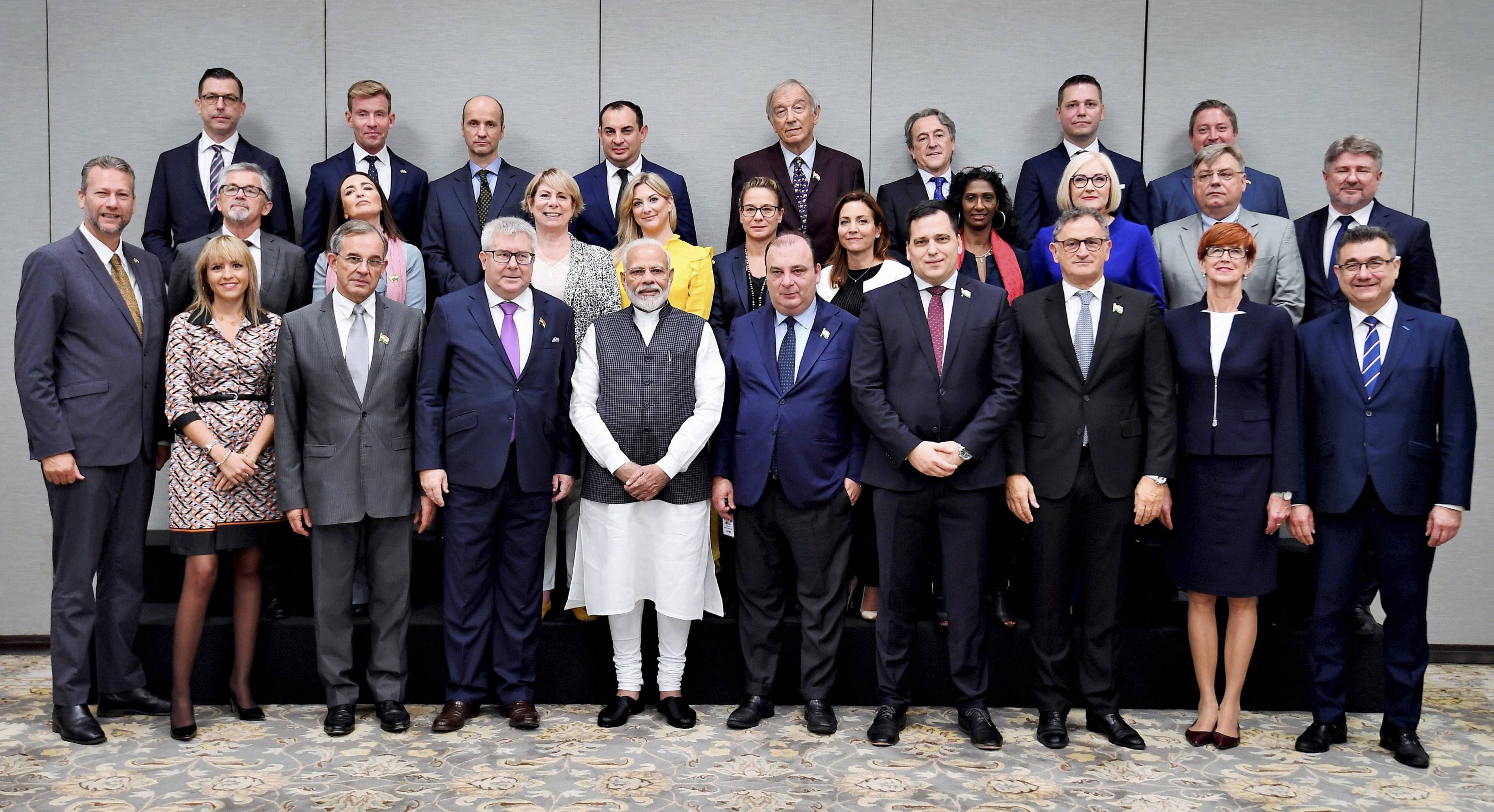
‘Friendly’ EU team to whitewash Modi govt actions in Kashmir
The Indian government’s move to allow a delegation of European Union members of parliament into Kashmir amounts to “internationalising” the issue, something that upends a long-held policy of maintaining the dispute as a bilateral issue with Pakistan, no more no less.

The Indian government’s move to allow a delegation of European Union members of parliament into Kashmir amounts to “internationalising” the issue, something that upends a long-held policy of maintaining the dispute as a bilateral issue with Pakistan, no more no less.
Some 27 EU members of parliament are in Srinagar on Monday to “see for themselves” the situation in Kashmir. The visit, closely choreographed by the Modi government, on the face of it will provide the visitors a hands-on feel of the state.
The visit, according to reports, appear to have been carefully thought out by an Indian sponsor, backed by the government. The ruling BJP, a Hindu nationalist right wing formation, has made it a point to choose mainly those who belong to similar right wing nationalist parties in Europe.
Of the 27 invited, most are reportedly from right wing parties. For instance, six French MPs are from former presidential candidate Marine Le Pen’s National Rally, four British MPs belong to the Brexit Party while six MPs from Poland are from the ruling far-right The Law and Justice (PiS) party, according to reports.
Among the characteristics of Europe’s right wing parties is the fact that all of them are anti-immigrant, Islamaphobic, pro-nationalist and have a conservative stand on social issues, similar to India’s BJP.
Also read: EU MP delegation arrives in Kashmir to assess ground situation
A European Union official was quoted by the media as saying that neither the European parliament nor any of the embassies of specific European countries were involved in the visit. Clearly, this indicates “cherry-picking” by officials of the Modi government of MPs who are expected to largely toe India’s line on the Kashmir issue. For example, delegation member Czech Republic MP Tomas Zdechovsky supported the revocation of special status to Kashmir stating that this will help destroy “terrorist organisations operating in Kashmir”.
Since August 5, when New Delhi revoked the state’s special status, Pakistan has attempted to build international opinion against India’s action with limited success. Other than China, Malaysia and Turkey no other country has openly backed Pakistan.
India’s contention that it is an internal issue has found more takers. However, US members of Congress and EU nations have expressed concern over the continuing siege of Kashmir including absence of communication links and the various difficulties being faced by ordinary people in that state.
A recent attempt by a US Congressman Chris Van Hollen to visit Srinagar was blocked by the Modi government as also requests by foreign journalists to cover the situation in the state.
That the Modi government agreed to and probably even suo motu invited the EU delegation is one thing, but what has shocked the opposition is a foreign team is going in when it has been very difficult, if not impossible, even for Indian opposition MPs to enter Kashmir.
CPI (M) MP Sitaram Yechury needed the intervention of the Supreme Court to be able to enter Srinagar. Former Congress chief Rahul Gandhi and several other senior politicians from other parties have been routinely stopped at Srinagar airport and sent back to Delhi.
For a government that talks of “Make in India” and a political leadership which rouses nationalist feelings at public rallies, the move to allow a group from abroad to go into Kashmir indicates an opportunistic plan to defuse criticism against the siege of the state , whose special status was unilaterally abrogated on August 5.
Since then, all communication links in Kashmir were cut off, markets closed and schools and colleges have been shut. Only recently the government lifted the communication blockade to a limited extent. Leaders of mainstream Kashmiri political parties have also been held in custody.
The move to get the EU delegation to visit Kashmir comes close on the heels of United States President Donald Trump’s repeated statements that he is willing to intercede on behalf of India and Pakistan to resolve the Kashmir dispute.
While Trump’s statement have been dismissed by top officials of the Modi government including Foreign Secretary S Jaishankar, the very fact that Trump has disregarded India’s negative response and continued to make the offer to intervene is an indication that there have been back channel talks on the issue.
The invite to the EU’s right wing nationalist MPs is the latest in a series of moves by the Modi government on Kashmir that have caught India’s opposition parties napping. For, other than token objections, none in the opposition has protested effectively enough against what the opposition perceives as a double-take by the Modi government on the Kashmir issue.
The Congress’s Jairam Ramesh and Sashi Tharoor have called the EU team visit as an insult to Indian parliamentarians and to Indian democracy. It has required one of their own, Subramanian Swamy of the BJP, to describe the EU MPs visit to Kashmir as “immoral” and a “perversion of national policy”.
Notwithstanding the criticism, now that the EU delegation has visited Srinagar, the question that crops up is whether it indicates any change in India’s long-held view against “internationalising” the issue. Or, is it a visit by “friendly foreigners” that will be used by the Modi dispensation to deflect criticism regarding its action in shutting out Kashmir from the rest of India and the world?

